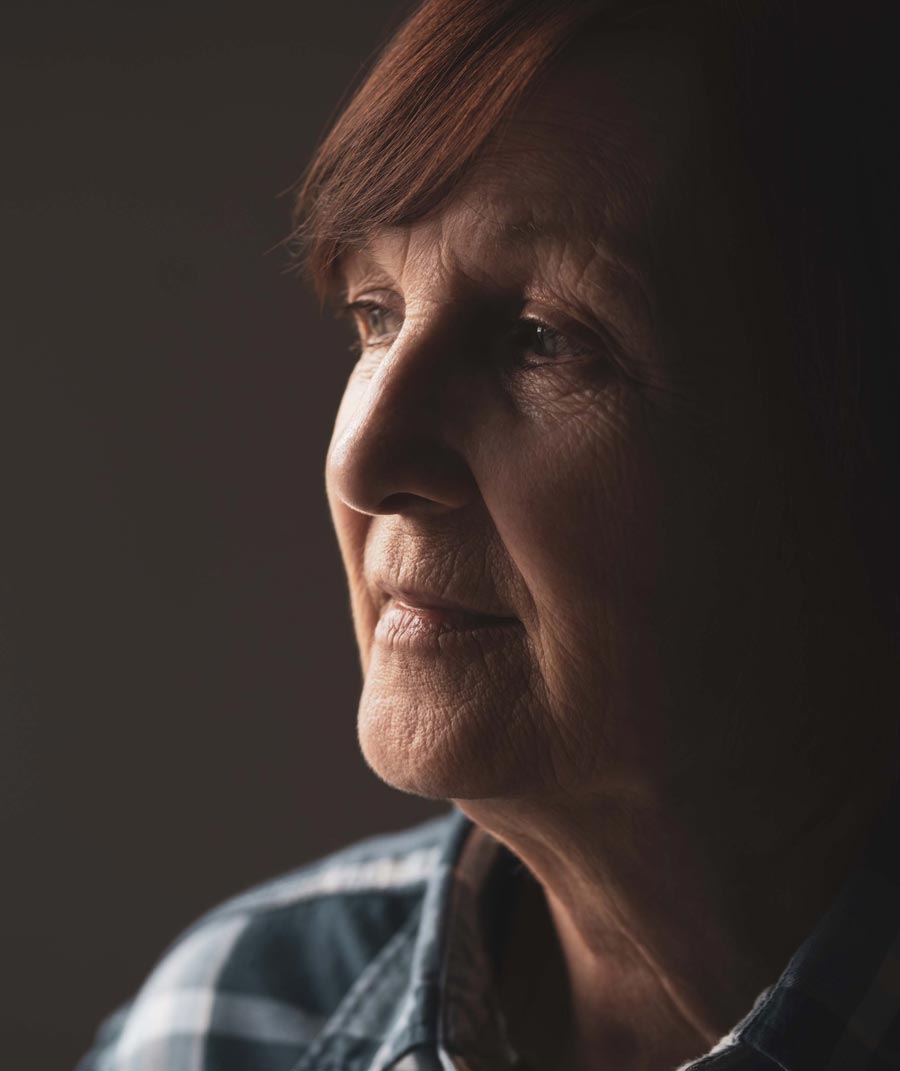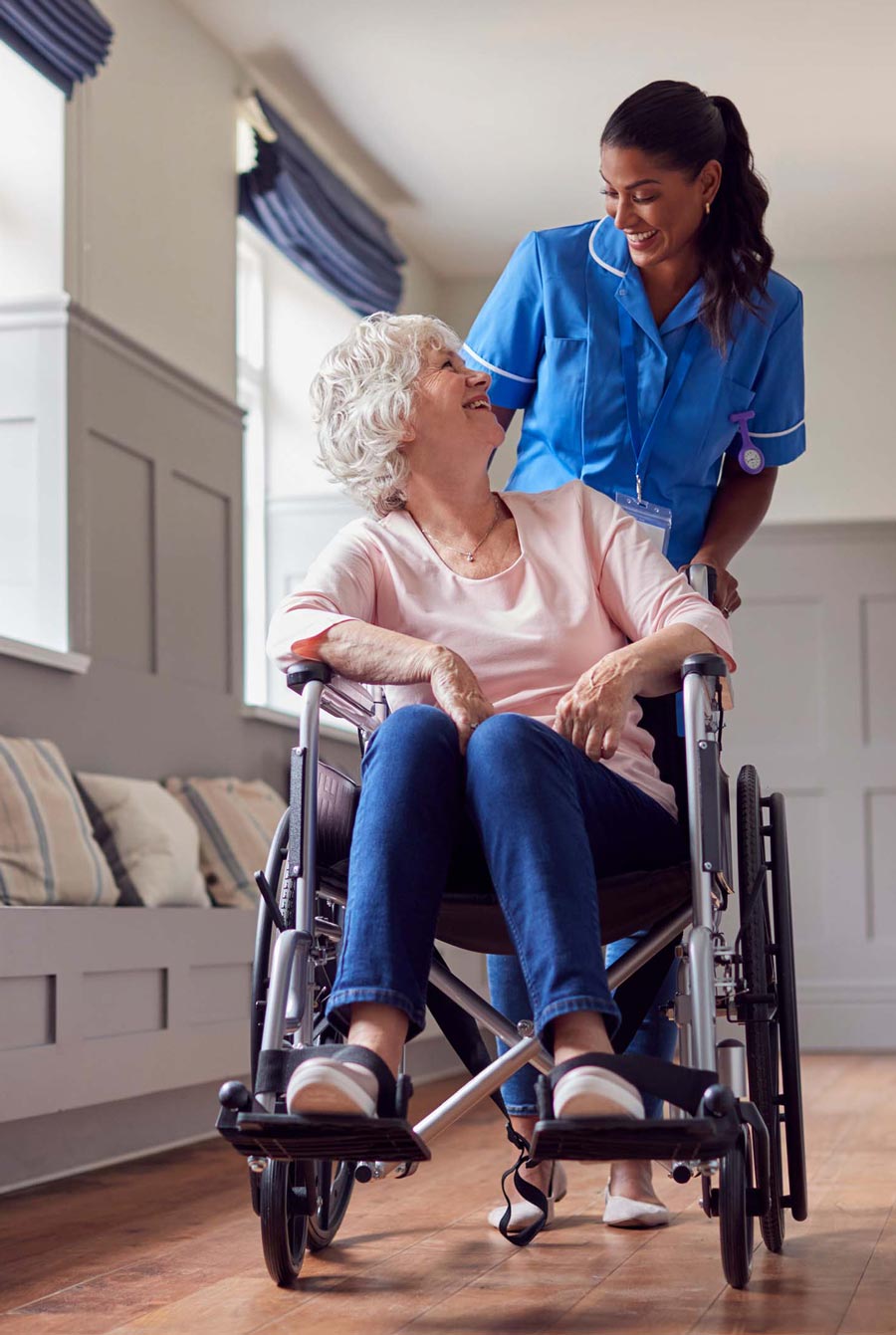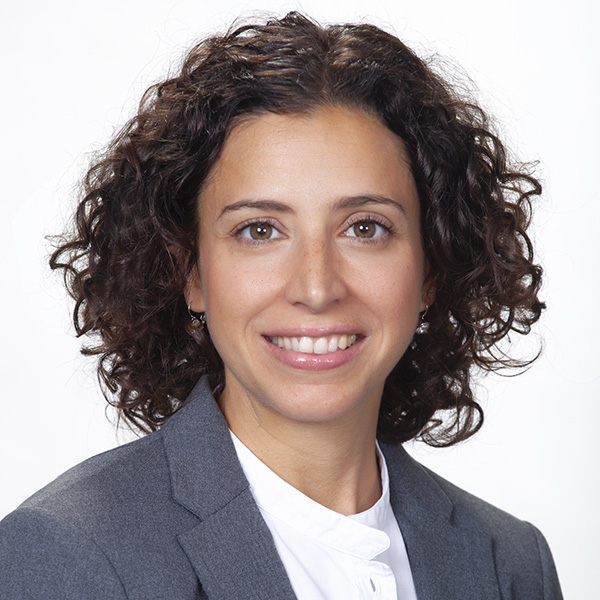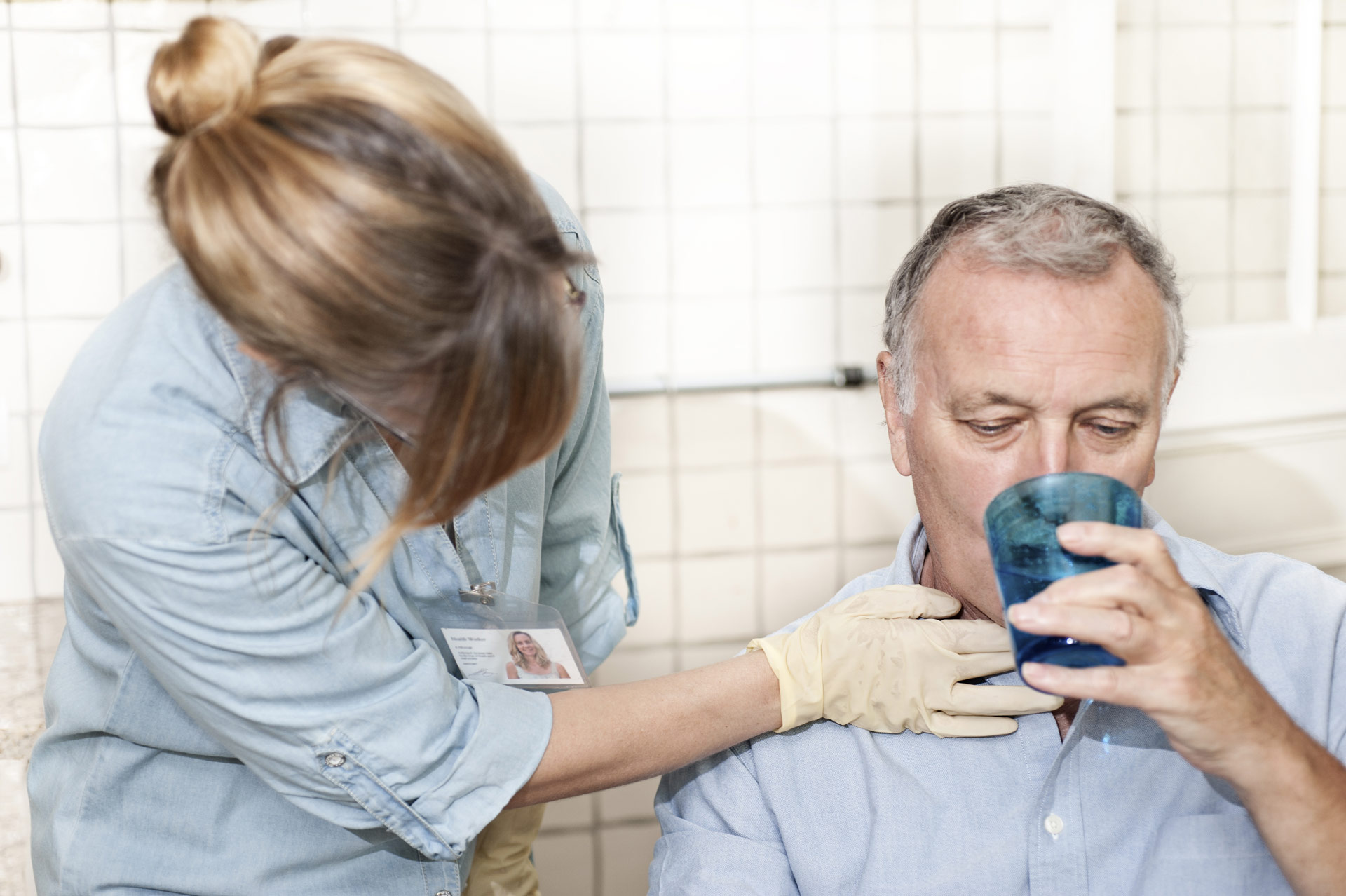Dementia
What is Dementia?
Dementia can be described as loss of mental skills that allow a person for self-governing. It is also called major neurocognitive disorder. Mental functions such as reasoning, judgment and memory slowly become deteriorated. Affected individuals may find it difficult to carry out day-to-day tasks, recognize familiar surroundings, and communicate coherently. They may also show changes in behavior. Dementia is not a single disease, but instead, a group of symptoms that can be caused by different conditions affecting the brain.
For the cognitive impairment to be considered dementia, the person’s functioning must be affected. If the loss in mental skills does not limit the person’s performance in usual activities, the condition is rather called mild cognitive impairment or minor neurocognitive disorder.
Cognitive impairment is usually insidious and evolves in a progressive manner. The most common cause of dementia is Alzheimer’s disease, which is present in 60-80% of cases. There are other causes for dementia: neurodegenerative (dementia with Lewy bodies, frontotemporal dementia, Parkinson’s disease associated dementia, etc.), vascular (vascular dementia), infectious (HIV-associated dementia), traumatic (dementia pugilistica), prion diseases (Creutzfeldt Jacob…), etc. In many cases, dementia is of mixed origin, which means that it is due to more than one cause.
Although the hallmark symptom of dementia is cognitive impairment, psychological and behavioral symptoms are very common, and are often the ones that lead to first consultation. It is therefore useful to learn about them in order to raise awareness.
Although the risk for dementia increases with age, it is not a condition that is exclusive to the elderly, as some types can appear at younger ages.
Alzheimer's Disease
Alzheimer’s disease is the most common cause of dementia. Although it is not yet fully understood, we know that specific changes occur in the brain tissue causing a loss of neurons in important areas. It is thought that the cause is multifactorial, meaning that different factors are probably involved such as genes, age and cardiovascular risk factors.
People with Alzheimer’s disease:
- Have memory lapses. They can forget names or what they were about to buy. They typically repeat themselves (asking the same questions on and on).
- Find it difficult to solve problems, understand numbers or draw conclusions.
- Lose judgment. They may no dress accordingly to weather conditions. They may give excessive gifts, buy more many things than needed or hire unnecessary services.
- Misplace objects, sometimes leaving them in awkward places (e.g., clothes in the freezer).
- Become disoriented in familiar places.
- Struggle for communicating and participating in conversations. They may no find the words or use the wrong words.
- Show behavioral changes. They may lose initiative, become more dull or sad, lose interest, become more isolated, experience changes in sleep pattern, become suspicious or more irritable (or even aggressive) …
For the diagnosis of Alzheimer’s disease, a specialized assessment by a doctor is necessary. The information provided by the patient’s entourage is very relevant because the affected person tends to underestimate the deficit.
The physician will take the medical history, perform a physical and neurological examination, pass a cognitive test to measure mental skills, and request blood tests to rule out other causes. In case of doubt, brain imaging could be requested to increase diagnosis certainty.
According to the stage of the disease, treatment will be initiated to slow down progression. In early stages, cholinesterase inhibitors are indicated (donepezil, galantamine or rivastigmine), and in more advanced stages, memantine is usually preferred.
Dementia with Lewy bodies
Dementia with Lewy bodies (DLB) is caused by abnormal deposits of a protein inside neurons. These deposits, also found in Parkinson’s disease, are called Lewy bodies.
Two out of 10 cases of dementia are due to DLB, although it is estimated that there may be more. Most cases occur in people with no family history.
Why and how the Lewy bodies alter the brain function is not fully understood. We know that Lewy bodies develop over years, even way back before the symptoms begin.
Lewy bodies gather in areas of the brain that are responsible for thinking, movement and visual perception. When the thinking area is first affected, the condition is called dementia with Lewy bodies. When the areas responsible for movement are first affected, the condition is called Parkinson’s disease.
People with dementia with Lewy bodies:
- May have visual perception disturbance. They can confuse shadows for other things.
- May see things that are not really there (animals, people…), especially at nighttime.
- May be convinced that they are being robbed, that there are intruders in the house, that their partner is unfaithful or that a family member has been replaced by an impostor.
- May struggle staying awake.
- May act out their dreams by moving, screaming or kicking.
- May have trouble moving (stiffness, shuffling, tremor…)
- May lose interest and initiative.
- May be depressed or anxious.
Diagnosis is based on clinical history, physical and neurological examination and assessment of the mental abilities with a test. The physician will ask for a blood test to rule out other problems and, may order a brain imaging test to increase diagnostic certainty.
There is no specific treatment for DLB. Drugs for Alzheimer’s disease may improve some of the cognitive symptoms such as alertness and hallucinations. Antipsychotics are poorly tolerated and have risks in this population; therefore, their use is restricted. Much of the approach to these patients relies on behavioral strategies, which improve quality of life for them and their caregivers.

Dementia
Although there is no drug that cures dementia, there are treatments that slow down its development or improve its symptoms.
Consulting with a doctor when changes in mental skills or behaviors appear is important because they may be due to corrigible conditions that need to be treated

Dementia
Although there is no drug that cures dementia, there are treatments that slow down its development or improve its symptoms.Frontotemporal Dementia
Frontotemporal dementia (FTD) is a group of disorders that affect the frontal and temporal lobes of the brain, resulting in a loss of neurons in these areas.
It usually develops earlier than Alzheimer’s disease, between the ages of 45 and 65. This generates great challenges because, at that age, most of the people work and have obligations (family, economic…)
There are different types of FTD:
- Behavioral variant: This is the most frequent type. It manifests with loss of interest and initiative, loss of empathy, lack of consideration for others, loss of inhibition, increased impulsivity, inappropriate behaviors, repetitive compulsive behaviors, changes in eating habits (binge eating or craving for carbohydrates) and neglect of personal hygiene.
- Language variants (primary progressive aphasia): These types are characterized by language impairment.
It seems that there is relationship between FTD and some movement disorders. The natural evolution of the disease is progressive impairment of the person’s overall functioning, leading to increasing dependence. The speed of progression depends on the type of FTD.
The causes behind FTD are not known. Genetic factors may play a role.
The diagnosis of FTD is based on clinical history and neurological and neuropsychological examination findings. In doubtful cases, the study can be extended with complementary tests such as brain imaging.
To this day, there is no cure FTD. However, habit change and some medications may relieve the symptoms.
Vascular Dementia
Vascular dementia is the second most common type of dementia after Alzheimer’s disease.
In vascular dementia, the brain is damaged because the oxygen supply to the nerve cells is diminished. This occurs when blood flow in the brain is interrupted.
The cerebral vascular system is the vessel network that carries oxygen and nutrients to the neurons through blood. Some conditions, such as arteriosclerosis, high blood pressure and diabetes can contribute to the network disfunction. Issues in a vessel (due to narrowing, obstruction or rupture) reduces the blood flow in the brain region supplied by it, and this can yield to unreversible damage.
Each area in the brain is responsible for a specific function. Therefore, depending on the location and size of the damage (due to reduced blood supply) the symptoms will be of one kind or another, and will be more or less severe.
Symptoms of vascular dementia are varied. Typically, there may be slowing of mental processing, memory lapses and cognitive rigidity. There may be mood changes, slowing of movements and clumsiness of gait. Symptoms of vascular dementia may come on gradually or all at once.
The vascular risk factors increase the risk of vascular dementia. Some of them cannot be modified, such as advanced age, gender and history of vascular disease. However, other factors can be controlled. These are hypertension, diabetes mellitus, atrial fibrillation, hypercholesterolemia, sedentary lifestyle, alcohol intake, smoking, drug use, sleep apnea, overweight and stress. It is important to detect the modifiable risk factors in time in order to manage them and reduce the risk for vascular dementia.
The diagnosis of vascular dementia is based on clinical history, physical and neurological examination and cognitive testing. Laboratory tests and brain imaging tests such as computed tomography or magnetic resonance imaging are typically requested.
Treatment of vascular dementia is aimed at improving cognitive symptoms with cholinesterase inhibitors and preventing from future events. Established brain injury cannot be reversed, but the risk for further damage can be reduced.
Lifestyle habit modification like quitting substance use and starting physical exercise is key to the management of the risk factors. There are also treatments that make the blood more fluid, treatments that help control blood pressure, diabetes, cholesterol levels and triglyceride levels. Sometimes, procedures like endarterectomy or angioplasty may be necessary to improve blood flow in the carotid arteries. In case of mood impairment, antidepressants may be indicated.
Mixed Dementia
Mixed dementia is when a person has more than one type of dementia. Alzheimer’s disease and vascular dementia are the two most frequently reported types in combination.
The risk of having more than one type of dementia increases with age, especially above 80.
Another less frequent type of mixed dementia is dementia with Lewy bodies together with Alzheimer’s disease.
Other types of dementia
In addition to the dementias described above, there are other types.
Among them are:
- Other neurodegenerative diseases such as dementia associated with Parkinson’s disease, corticobasal degeneration, progressive supranuclear palsy and multiple system atrophy.
- Dementia associated to normal pressure hydrocephalus, which is due to increase of cerebrospinal fluid in brain cavities. Treatment consists of surgical shunt to drain the excess fluid from inside the skull.
- HIV-associated neurocognitive disorder. In this case, antiretroviral treatment significantly improves cognition.
- Neurosyphilis, a neurocognitive disorder of infectious origin. The specific treatment is antibiotics.
- Autoimmune dementias
- Metabolic dementias related to thyroid, parathyroid, adrenal, liver or kidney disorders. Here the treatment will be aimed at correcting the cause.
- Dementia due to traumatic brain injury. Typical in combat and contact sports professionals. Can also occur after accidents.
- Prion dementias, such as Creutzfeldt-Jakob disease.

Dementia
Although there is no drug that cures dementia, there are treatments that slow down its development or improve its symptoms.Why diagnosing dementia matters?
Consulting with a doctor when changes in mental skills or behaviors appear is important because they may be due to corrigible conditions that need to be treated. For example, vitamin deficiency, hormonal or metabolic problems, mood disorders, sleep disorders, sensory problems (visual or auditory), etc. A complete medical evaluation will help detect these causes and correct them.
Although there is no drug that cures dementia, there are treatments that slow down its development or improve its symptoms. Early modification of lifestyle habits and behavioral measures also help preserve and enhance remaining mental abilities.
Early dementia diagnosis enables the patients to participate in decision making with regards to their future and the needs they will have. It can help them prioritize what is important in their live, such as travelling or early retiring. It also allows them to take legal decisions in anticipation.
Diagnosis of dementia can also help the family get organized and plan ahead. Architectural modifications at home, request for assistance, anticipating a nursing home…
It is important to plan ahead because dementia is generally irreversible and progressive.
Division of Medicine
Psychiatrist
Adults and adolescents
Languages: English, French and Spanish
Speech Therapy for seniors
Speech Therapy for seniors
Speech Therapy rehabilitation is often necessary for the recovery of communication abilities or swallowing skills after a stroke, a neurodegenerative disease, or due to the natural aging process.
Maintaining effective communication is important at any age: it enables us to interact with other people and to express illusions or wishes. In addition, in the elderly, communication can be vital, when transmitting a need or physical pain, or to alert in an emergency situation.
From the Sinews area of Speech Therapy, we take care of the assessment of communication, language, voice and swallowing difficulties, so that our elders can continue to communicate and maintain, or improve, skills that affect daily life.
Some difficulties that our speech therapists can treat are:
- Expressive language difficulties: when they cannot find the right words, when the words they say don’t seem to make sense, or if the articulatory muscles do not produce the necessary movements for fluent speech
- Comprehensive language difficulties: when they can’t understand what we are saying, even if they can hear us properly
- Complications in swallowing, with choking and / or aspirations
- Mild memory and attention difficulties
- Voice and voice-respiratory coordination disorders, after a tracheostomy or vocal cord paralysis, or due to the aging process
Dr. Baquero, an expert Psychiatrist in the treatment of the elderly, coordinates the Sinews Senior’s Department and evaluates in a first interview with the patient and / or their family what the next step should be. If necessary, a neuropsychological and / or language evaluation will be carried out to better understand the existence of a memory problem or any other mental capacity, and the necessary services will be coordinated:
- Memory stimulation (with personalized exercises that affect the evaluated areas)
- Speech Therapy
- Psychotherapy focused on finding leisure and social activities that allow you to recover the joy of living
At Home Services
They may be offered, once the evaluation and design of the therapeutic plan has been completed (for which it is necessary to go to the clinic*).*access for people with reduced mobility on Calle Serrano Anguita 18
Psychiatry for seniors
Psychiatry for seniors
Is my parent depressed, sad or sick?
It can be truly difficult to wonder if a parent that is losing energy is really sick, sad, or developing a depression.
Psychiatry for seniors
Is my parent depressed, sad or sick?
It can be truly difficult to wonder if a parent that is losing energy is really sick, sad, or developing a depression.
People do not get depressed because is growing old. With age, one cannot avoid getting tired faster and more vulnerable. Nevertheless, age is not a disease, and it is not a natural age phenomenon to isolate oneself and withdraw into oneself. It is a big mistake to think that just because you get old, you also automatically become sadder. It is about getting physically and mentally tired faster because one have certain age.
It is essential to try to distinguish, between explanatory and unexplained conditions. It is not a warning sign, if they get naturally tired in relation to their age. Fatigue can be present and has nothing to do with depression. In addition, it is clear that one is allowed to feel sad and alone when losing a partner, an old friend or someone close. Many relatives mistakenly connect loss, sadness, and depression. However, if the elderly person becomes sad, introverted and withdrawn for no apparent reason, it can be a sign of depression.
It is very important to evaluate all aspects, including general health and the medications they take, as there are diseases that can lead to changes in mood and behavior. This is not to mention that usually older people take combinations of multiple medications that can induce variations in humour, and a general slowing down in the usual activities.
In order to find abnormal behaviour could be useful to remember how they used to be a few years back. Were they happy with life? Was there anything they could be happy about, or was there something they enjoyed doing that made life worth living? If you experience your mother or father very changed – sad and introverted and without a desire for anything -, and maybe they cannot even remember what they were once happy with – then they may have a depressive illness. Moreover if this changes are present morning, noon and evening.
Senior adults do not always get depressed in the classic way. They may become irritable and aggressive or may develop paranoia. They may also become more preoccupied with their own health and may develop hypochondriac features. It does not belong to getting old, so if they have not had those traits earlier in life, it is also not natural to get them in old age. Others have concentration problems, where the relatives begin to consider whether it is an incipient dementia. Here it is important to decide whether it is a depression or an incipient dementia, because there are depressions that are similar to dementia and vice versa.
Help prudently
It can be hard to watch while your old mother or father is not well. However, if you want to help, you have to be careful. Each one that is willing to help, should respectfully ask how the elderly person feels: You can try to ask what life is like today, unlike in the past. How they feel about their body and what they think about it. At the same time, it should be remembered that a depressed person often does not have insight into his own illness at all; therefore, it would be difficult to take them to get the assistance they need, so you have to proceed cautiously so they do not feel pushed or forced to do something they do not want to do. It is always better in terms of good therapeutic compliance if the patient agrees to get medical assistance rather than just take them without their approval.
Psicología, Psiquiatría y Logopedia para Personas Mayores
Psychology, Psychiatry and Speech Therapy for Seniors
SINEWS offers a wide range of services for seniors.
Psychology, Psychiatry and Speech Therapy for Seniors
SINEWS offers a wide range of services for seniors.
At SINEWS our seniors department has a team of Psychiatrist, Psychologists and Speech Therapists, experts in this stage of life and available in the clinic and at home.
Psychology for seniors
Psychology for seniors
Emotional, behavioral and communication difficulties of the elderly require specialized attention, respectful of their decisions and that makes all the necessary therapeutic effort.
Psychology for seniors
Emotional, behavioral and communication difficulties of the elderly require specialized attention, respectful of their decisions and that makes all the necessary therapeutic effort.
Grow older without missing out on all that life has to offer.
With specialized attention and respecting our decisions, it is possible.
- Mild memory difficulties, cognitive impairment, and dementia
- Low mood and lack of vital stimuli
- Mourning
- Adaptation to illness and loss of autonomy
- Communication difficulties due to physical problems (speech problems after stroke, muscle weakness, tracheostomy ...)
- Swallowing problems with choking
Dr. Baquero, an expert psychiatrist in the treatment of the elderly, coordinates the department and evaluates in a first interview with the patient and / or their relatives what the next step will be. If necessary, a neuropsychological and / or language evaluation will be carried out to better understand the existence of a memory problem or any other mental capacity problem, and the necessary services will be coordinated:
- Memory stimulation (with personalized exercises that have an impact on the areas evaluated)
- Language rehabilitation
- Psychotherapy focused on finding leisure and social activities that allow the person to recover the joy of living
- Grief support groups
Taking care of the caregiver
At SINEWS we are well aware of the complicated role of people who care for older people with cognitive impairment or dementia. That’s why we know that taking care of them is as important or more important even than offering the best treatment for the patient. And we do it by:
- Information on the normal evolution of the disease and what behaviors are voluntary and which are the result of loss of skills
- Guidelines for daily life with an elderly person. Small tricks and routines that can help maintain their abilities longer or improve their quality of life
- Guide to self-care. If the caregiver breaks down, everything will get worse. It's very important not to forget oneself and establish the things we need to stay well
At Home Services
They may be offered, once the evaluation and design of the therapeutic plan has been completed (for which it is necessary to go to the clinic*).*access for people with reduced mobility on Calle Serrano Anguita 18









